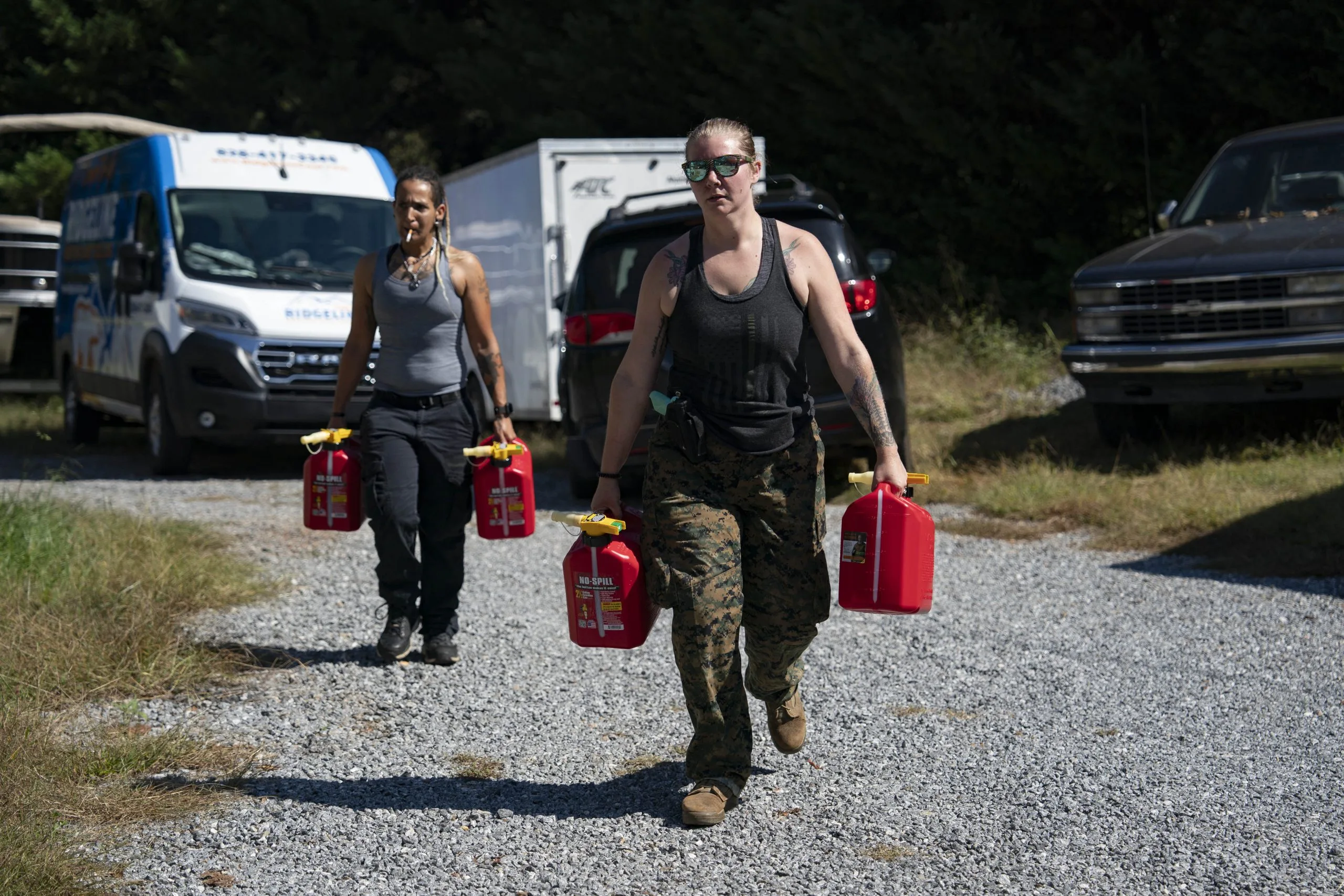Two weeks after Hurricane Helene, mutual aid organizers say the devastation is incalculable and parts of Western North Carolina resemble a war zone. “It looks like the suburbs of Beirut, just fewer buildings.”
Byron Ballard:
I’ve got to be honest with you, many of the people that I talk to and deal with every day aren’t feeling anything. We can’t. We can’t because there’s too much work to do to stop and process. So we’ll do that later. I’m dreaming of a trip to the beach in the winter where nobody’s there and I don’t have to answer anybody else’s questions. We are in a place that we’re in the middle of a natural disaster. We’re at the beginning of a natural disaster. There are places that look perfect and untouched only to discover that there’s four feet of toxic mud inside them. My family has lived on the French Broad River since they came from an adjoining county at the end of the 19th century, and I lived there still, but high up so that I could watch the river rise in 1916 [edit: sic - 1960?]. This river rose to 22.4, I think feet above its banks and it was over 27 feet for this flood.
So it is the worst flood that anyone here has ever historically experienced. What we are looking at is need on every possible level. So people need water because the water system is destroyed. There are towns that are gone. There’s a little sweet little touristy town called chimney rock, and it is much of it is simply gone. It’s not that the trees are down and there’s some mud, it’s that the buildings are gone.
Those women looks pretty cool though. The last one has a cigarette in her mouth while carrying the fuel.
Hopefully some men are around too.
America is a first world country. If we believe it hard enough, we can make it true.



